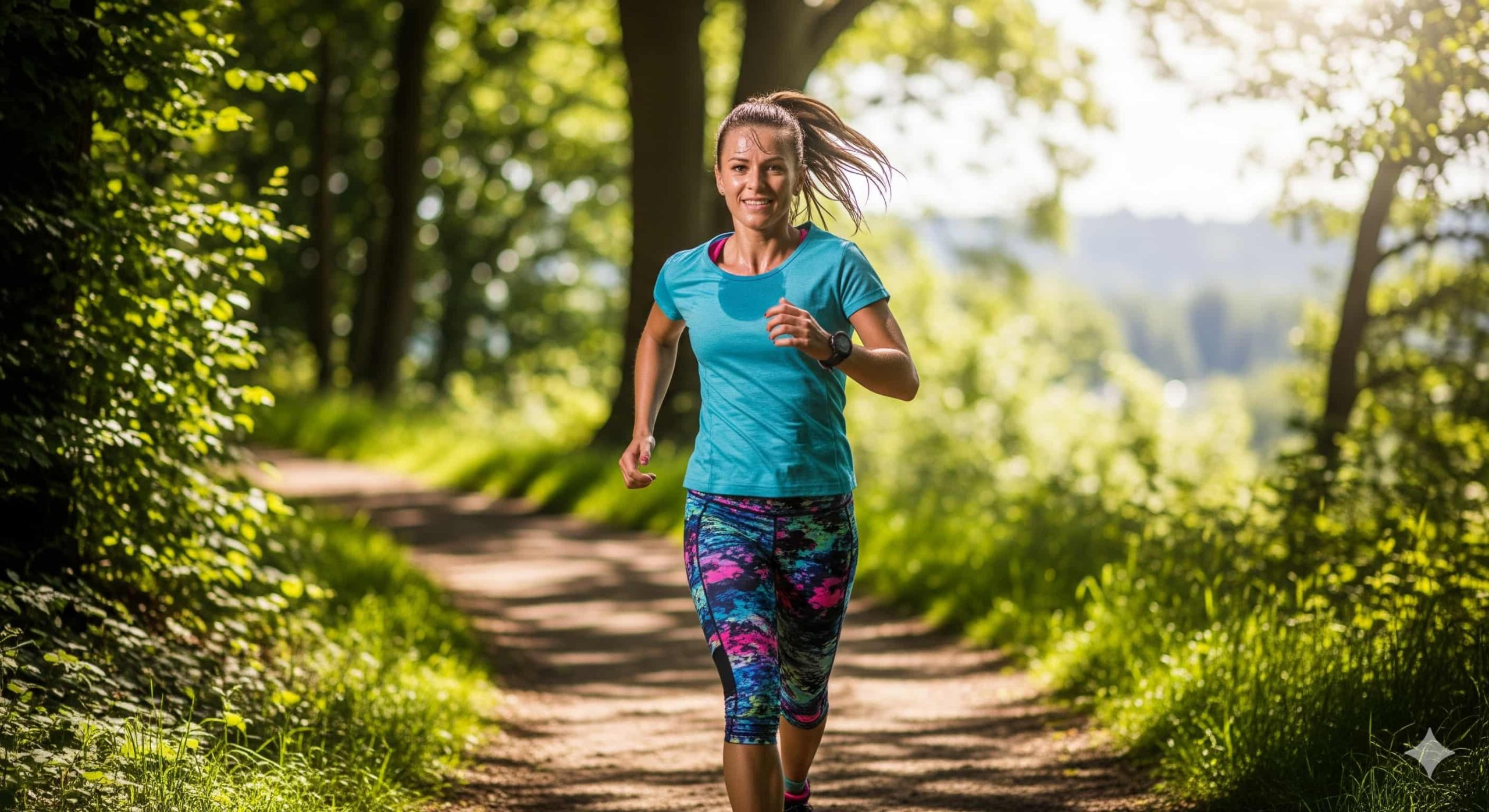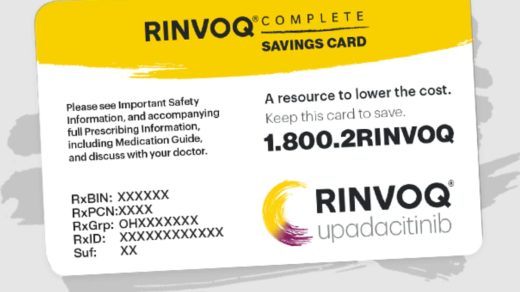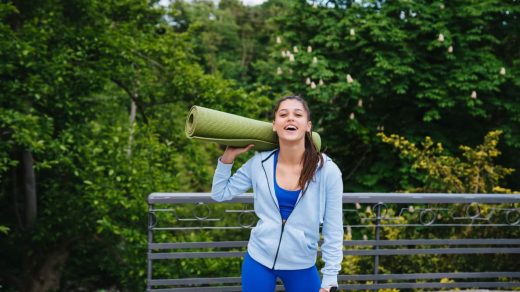Regular physical activity helps keep your immune system strong and better able to fight off infections and illness.
Your body’s defense system works harder and more efficiently when you move regularly and stay active.
Many people think they need intense workouts or expensive gym memberships to boost their immunity.
The truth is much simpler. Even light activities like walking or swimming can make a real difference in how well your body fights germs and stays healthy.
Exercise works like medicine for your immune system. When you move your body, blood flows better throughout your system.
This improved circulation helps immune cells travel faster to where they’re needed most. Your body also makes more infection-fighting cells during and after physical activity.
The best part is that moderate exercise is safe for almost everyone. You don’t need to run marathons or lift heavy weights.
Simple activities like walking around your neighborhood, swimming at a local pool, or doing bodyweight exercises at home all provide immune benefits.
Research shows that people who exercise regularly get sick less often.
When they do catch colds or other infections, their symptoms are usually milder and don’t last as long.
Immune System Boosting Through Sports and Physical Activity

This guide will show you exactly how to use sports and physical activity to strengthen your body’s natural defenses.
For practical tips and simple plans, visit Sports Guides.
Why Exercise Helps Immunity?
Here’s how physical activity supports your body’s natural defense system:
- Improves circulation – Exercise moves blood and immune cells around your body more efficiently
- Reduces chronic inflammation – Moderate activity lowers harmful inflammation over time
- Better sleep and stress relief – Good rest and lower stress levels help immune function
- Supports overall health – Stronger muscles and a healthy weight give your body better defense capabilities
How Much and What Type of Activity Helps?
The right amount of exercise makes a big difference for immune health:
- Moderate aerobic activity – Walking, brisk walking, or cycling for 150 minutes per week
- Strength training – Use resistance bands or bodyweight exercises for 2 sessions per week
- Short high-intensity bursts – Brief intense workouts can help, but keep them short if you’re new to exercise
- Flexibility and breathing work – Yoga, stretching, and deep breathing support recovery and reduce stress
Best Sports and Activities for Immunity
These activities are safe and effective for building immune strength:
- Walking – Safe, low risk, and easy to do every day
- Swimming – Gentle on joints while providing excellent cardiovascular benefits
- Cycling – Builds endurance with low impact on your body
- Team sports (casual level) – Provides social support plus fitness benefits, but watch intensity
- Resistance training – Builds muscle and helps with blood sugar control and immune function
- Outdoor activities like hiking – Fresh air and safe sun exposure for vitamin D production
Quick Safety Rules
Follow these important guidelines to exercise safely:
- Start slowly if you’re new to regular exercise or returning after a break
- Avoid very long or extreme sessions when you’re feeling sick or run down
- Rest completely if you have a fever or body-wide symptoms like aches and chills
- Stay well hydrated and eat balanced, nutritious meals to support your training
- Check with your doctor if you have chronic health conditions or take medications that might affect exercise
Step-by-Step: A Simple Weekly Plan
Follow this easy plan to build immune-supporting fitness habits:
- Pick 2-3 activities you actually enjoy – Choose from walking, swimming, cycling, or light strength training
- Do 30 minutes of moderate activity 5 days per week – Or spread 150 minutes throughout the week, however works for you
- Add 2 short strength sessions per week – Each session should last 20-30 minutes, focusing on major muscle groups
- Include one rest or gentle stretching day – Your body needs time to recover and adapt
- Track how you feel and adjust slowly – Increase intensity or duration gradually over several weeks
Simple Table — Activity at a Glance
| Activity | Time per Session | Why It Helps | Safety Tip |
|---|---|---|---|
| Walking | 20-40 minutes | Boosts circulation and is easy to maintain | Wear supportive shoes and start slow |
| Swimming | 20-40 minutes | Provides low-impact cardiovascular exercise | Always swim where lifeguards are present |
| Cycling | 30-60 minutes | Builds endurance without joint stress | Always wear a helmet and follow traffic rules |
| Strength training | 20-30 minutes | Builds muscle and supports immune function | Start with light weights and focus on proper form |
Nutrition, Sleep, and Recovery
Support your exercise routine with these healthy habits:
- Eat a balanced diet – Include lean protein, whole grain carbs, fruits, and vegetables in your daily meals
- Get 7-9 hours of sleep nightly – Your immune system repairs and strengthens itself during quality sleep
- Limit alcohol and late nights – Heavy drinking or staying up very late can interfere with recovery
- Have a small post-workout snack – Try yogurt with fruit or a handful of nuts to help your body recover
How to Tell If Training Is Helping?
Look for these positive signs that your exercise routine is supporting your immunity:
- More daily energy – You feel more energetic throughout the day and recover faster from activities
- Fewer or milder cold symptoms – Over time, you may notice less frequent illnesses or quicker recovery
- Better sleep quality – You fall asleep more easily and wake up feeling more rested
- Lower stress levels – Regular activity helps you handle daily stress more effectively
Warning sign: If you get frequent infections after hard exercise sessions, you may be training too intensively.
When to See a Doctor?
Consult with a healthcare provider in these situations:
- Frequent infections despite healthy habits – If you get sick often, even with a good diet, exercise, and sleep
- Chronic health conditions – Get medical clearance if you have autoimmune diseases, heart problems, or lung conditions
- Medication interactions – Ask your provider how vaccines or medications might affect your training plan
- Concerning symptoms – Any unusual fatigue, persistent infections, or other worrying health changes
FAQs:
- Can exercise prevent all infections?
No – exercise helps lower your risk of getting sick, but cannot stop all infections or illnesses.
- Is high-intensity training bad for immunity?
Very long or extremely intense training can temporarily lower immunity; balance hard sessions with adequate rest.
- When should I return to exercise after being sick?
Wait until fever and major symptoms are completely gone, then start slowly with light activity.
- How long before I see immune benefits?
Most people notice improvements in energy and sleep within 2-4 weeks of consistent moderate exercise.
- Can I exercise with mild cold symptoms?
Light exercise may be okay with mild symptoms above the neck, but rest if you have chest congestion, fever, or body aches.
Conclusion and Call to Action
Small amounts of regular physical activity can significantly help your immune system and overall well-being. You don’t need to become a professional athlete to see real health benefits.
Start with activities you enjoy and can realistically fit into your schedule. Consistency matters more than intensity when it comes to immune health.
Remember that exercise works best as part of a healthy lifestyle that includes good nutrition, adequate sleep, and stress management.
Visit Sports Guides for simple workout plans, practical tips, and easy-to-follow routines that support your immune health goals.
Authority Links:
- World Health Organization — https://www.who.int
- Centers for Disease Control & Prevention — https://www.cdc.gov
- Harvard Health — https://www.health.harvard.edu
- Mayo Clinic — https://www.mayoclinic.org
- American College of Sports Medicine (ACSM) — https://www.acsm.org
- National Institutes of Health (NIH) — https://www.nih.gov
- NHS — https://www.nhs.uk



